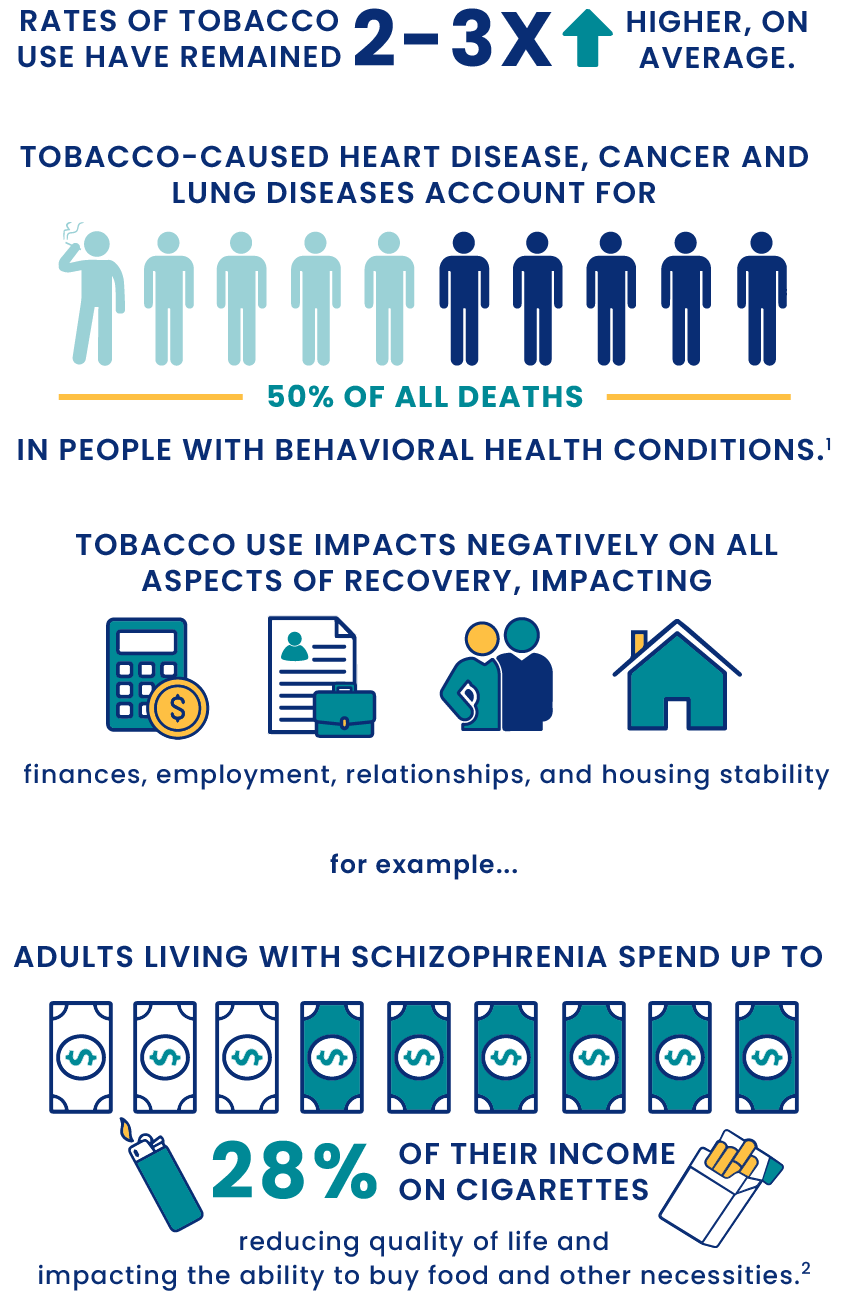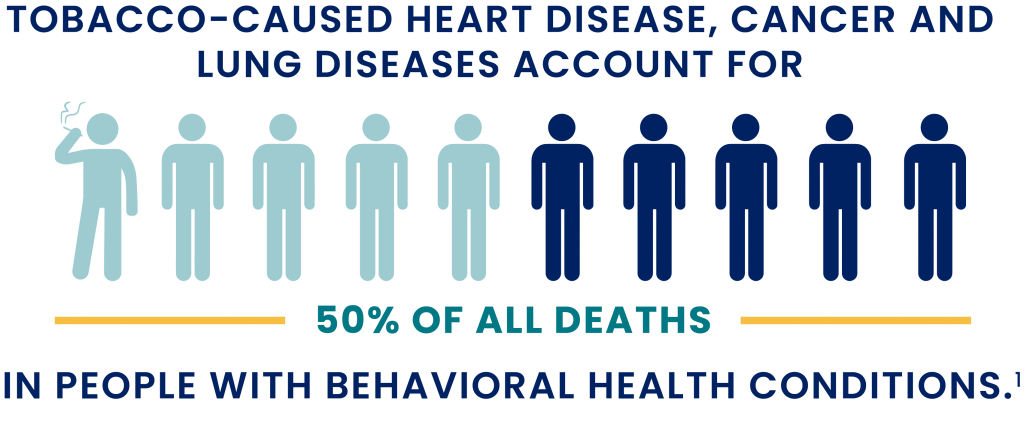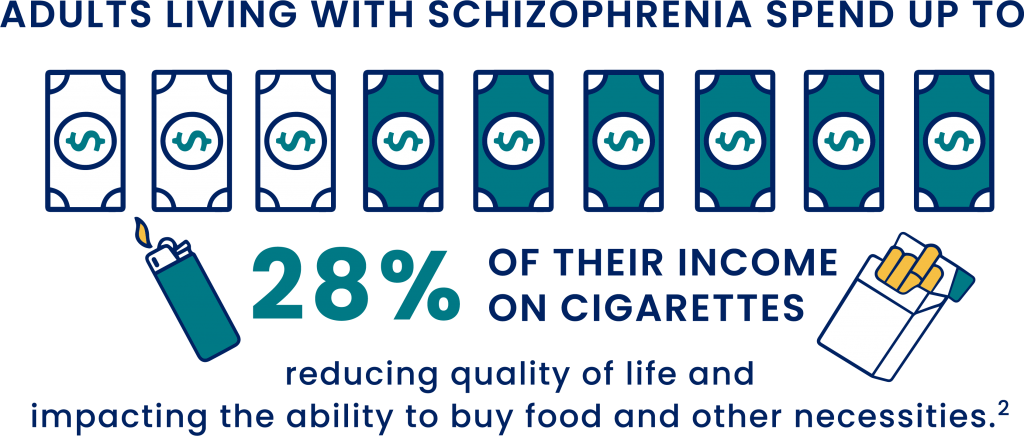Addressing Tobacco
ADDRESSING TOBACCO USE AS A CO-OCCURRING DISORDER
Addiction to nicotine or tobacco is like any other addiction. Best practices for
co-occurring mental health and substance use disorders supports integrating
treatment for both as part of routine care.
TOBACCO USE NEGATIVELY IMPACTS HEALTH AND OTHER ASPECTS
OF RECOVERY
Tobacco-related illness remains the primary cause of death for people with behavioral
health conditions. Such deaths are preventable, yet anti-tobacco campaigns aimed at
the general population have not reached these groups:




for example…

TOBACCO USE IS A SOCIAL JUSTICE ISSUE
Tobacco use remains high among those with low income and other vulnerable groups, making this a social justice issue. The tobacco industry uses targeted marketing to reach these populations, including people with behavioral health conditions.
ACCESS TO TREATMENT FOR TOBACCO USE DISORDER IS LIMITED

- Tobacco use continues to be treated as a low priority issue
- Nicotine/ tobacco withdrawal includes symptoms of anxiety, irritability, and mood changes that can mask other symptoms and complicate treatment
THE GOOD NEWS IS
Many people with behavioral health conditions want treatment to help them to quit
tobacco. Many succeed.
Even brief interventions can work. Having an engaging approach that is educational
and motivational can help individuals make small steps forward.
Policies that restrict tobacco use in the environment support treatment efforts and
reduce cues and triggers for those working on quitting
Providing training for staff who work in behavioral health settings results in improved
attitudes and the delivery of more tobacco use disorder treatments4
Behavioral health providers play a critical role.
WE’LL SHOW YOU HOW!
We are available to talk with any behavioral health programs in NYC about getting
started. We can assist even if you are in the very first stages of thinking about
addressing tobacco in your program. Email us to schedule a consultation. All of our
services are free for NYC behavioral healthcare providers.
1 Callaghan et al: Patterns of tobacco-related mortality among individuals diagnosed with schizophrenia, bipolar disorder, or depression. J of Psychiatr Res, 2013
2 Steinberg ML et al., Financial Implications of cigarette smoking among individuals with schizophrenia. Tob Control 2004
3 Marynak K, VanFrank B, Tetlow S, Mahoney M, Philips E, Jamal Mbbs A, Schecter A, Tipperman D, Babb S. MMWR Morb Mortal Wkly Rep. 2018 May 11; 67 (18): 519-523.
4 Williams JM et al., Increasing Tobacco Dependence Treatment through Continuing Education Training for Behavioral Health Professionals. Psychiatric Serv. 2015
More statistics can be found on the CDC website.
